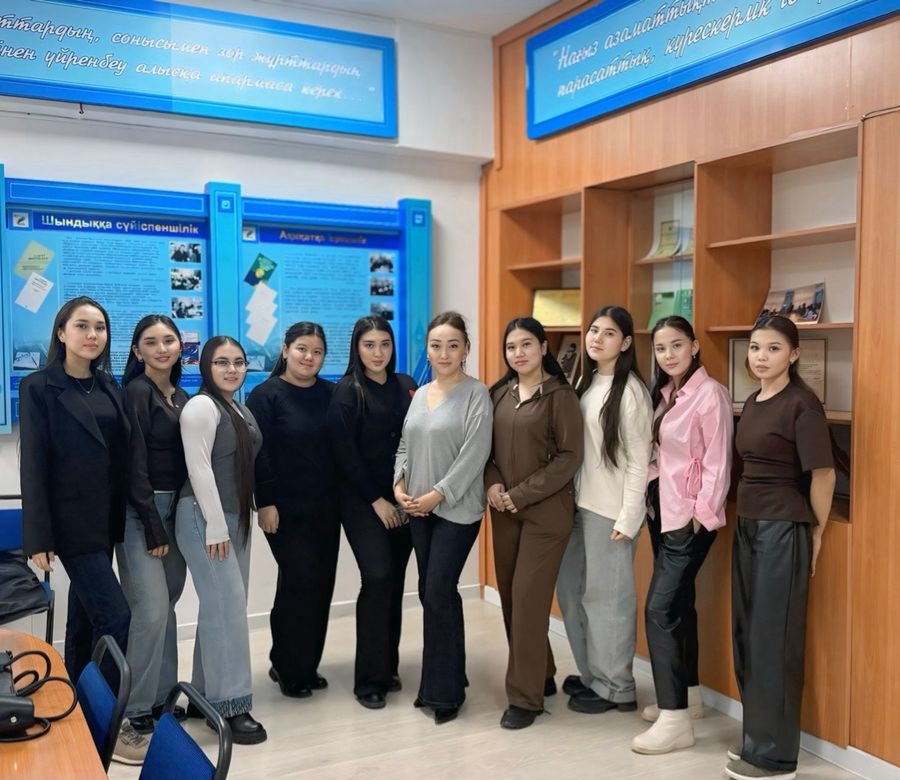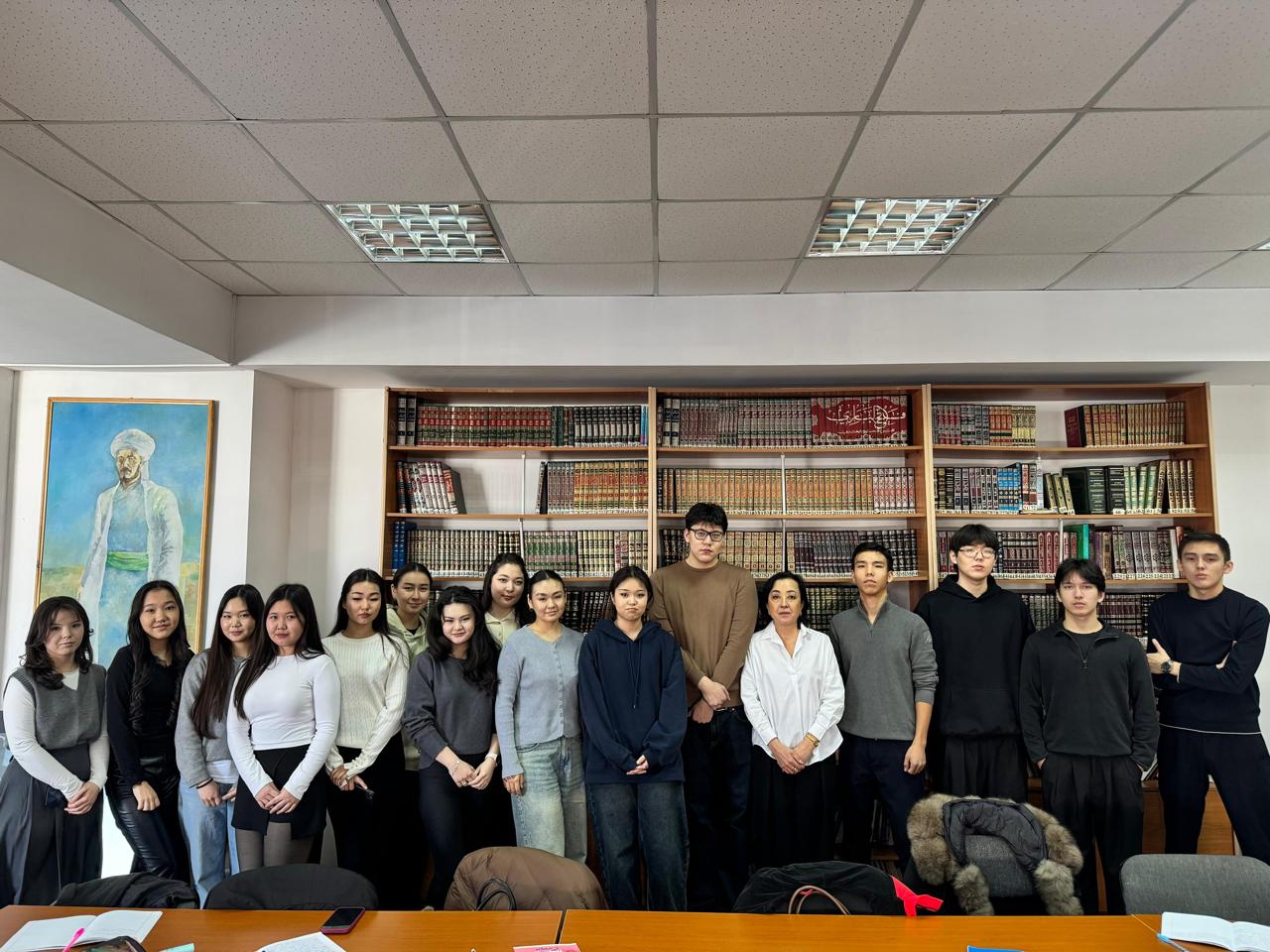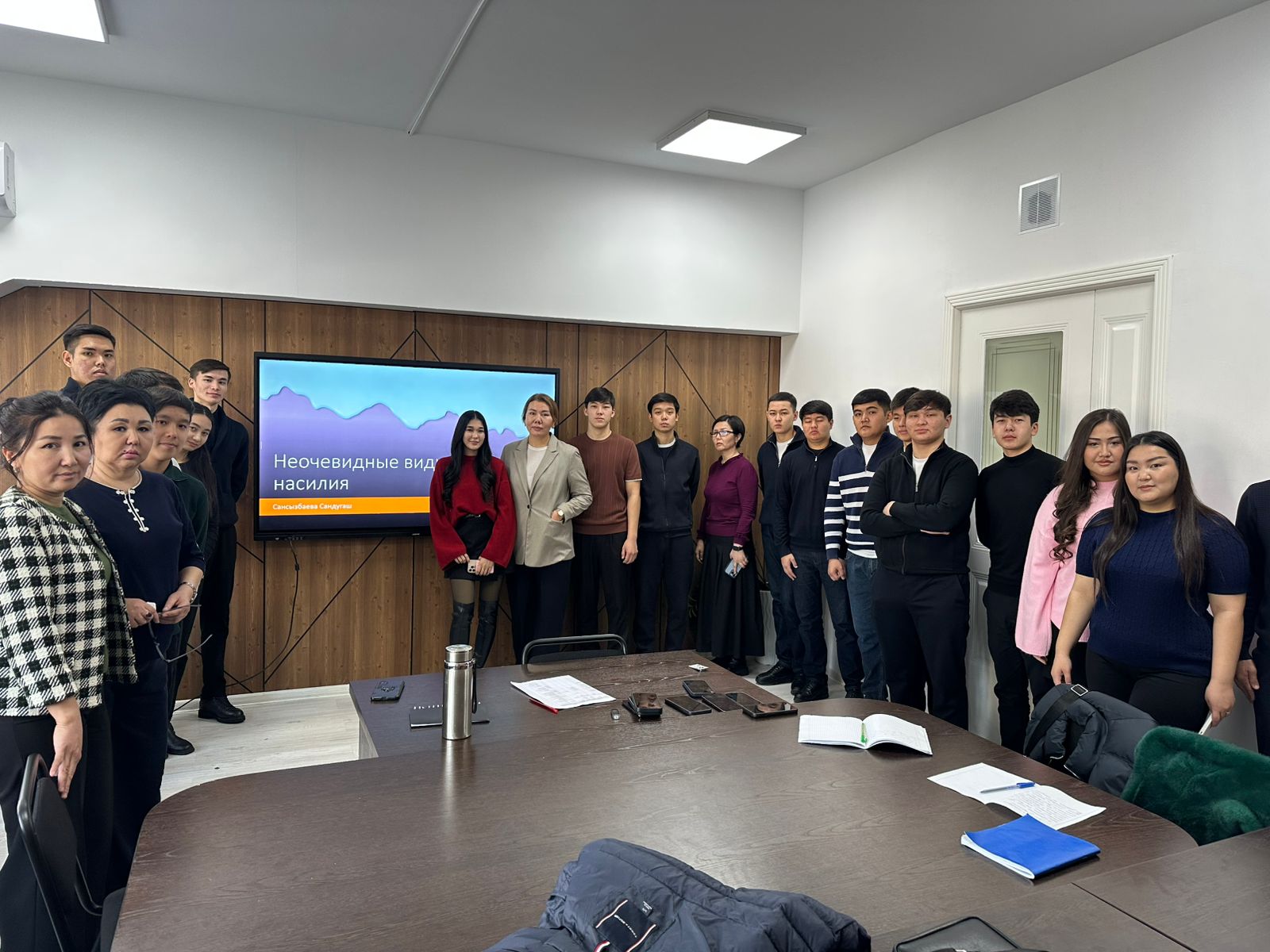Round table as part of an educational initiative
.jpg)
According to an educational initiative aimed at fostering intellectual, conscious, and responsible youth through enhancing the quality of education, the teaching staff and the PhD students of the Department of Kazakh Literature and Literary Theory at the Faculty of Philology of Al-Farabi Kazakh National University, organize weekly educational and awareness-raising events aligned with Sustainable Development Goals.
On December 3, 2024, within the framework of «Goal 5: Gender Equality», an open-format round table discussion on the topic: «SDG 5: Gender Equality» was held. The event was organized by Senior Lecturer, PhD, Eleonora Sarsenaliyevna Seysenbiyeva, and PhD students of the «8D02304 – Literary Studies» major, Svetlana Urazgaliyeva, Gulsum Ametova, Abilay Sailaukhan, Rauan Bolat, and Akbota Sadyk.
The discussion brought together faculty members, PhD students, and the undergraduates majoring in the «Literary Studies» and «Kazakh Language and Literature». The participants shared their research findings and discussed pressing issues at the intersection of national education and global culture.
The dialogue focused on two main areas:
- The characteristics of equal rights policy in Kazakh society.
- The place of gender policy on the global stage.
The first group emphasized the importance of preserving national values and adhering to principles of statehood within the framework of a secular society. They highlighted that drawing on historical experience while adapting to modern realities could pave the way for clear and sustainable development.
The second group focused on the preamble of the UN Charter, which mentions "human rights" seven times, underlining the significance of human capital. They proposed examining the historical and cultural aspects of addressing gender equality issues in Kazakhstan and eliminating discrepancies in international social and statistical rankings related to gender equality.
The breadth of the topic fostered diverse opinions, valuable insights, and innovative perspectives. The students actively participated in the discussion, asking questions, sharing their views, and analyzing the topics.
The stages of the debate were logically structured, ensuring the event's objectives were met. The educational initiative successfully achieved its goal, promoting responsible engagement with issues of equality and sustainable development among the youth.
Other news


